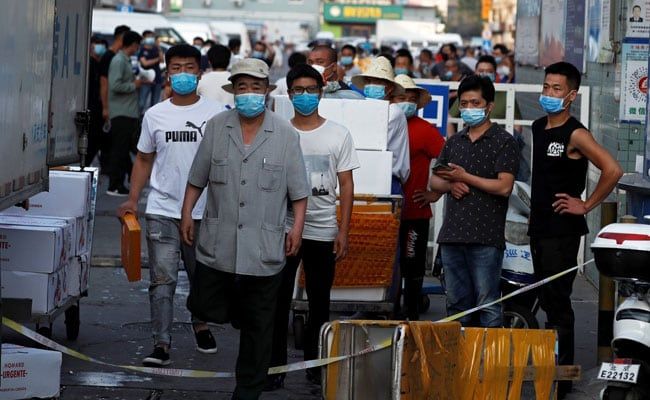When you get back home, you might want to gargle with salt water. It would kill virus' in the throat. Nielmeds makes a nasal rinse that can rinse sinus area. The virus will enter through mouth, nose or eyes. The severity of illness seems to be related to initial viral load amounts, and gargle and rinse can help. Obviously, distance, mask, wash hands, etc. Be safe, my friend.
https://bestlifeonline.com/thailand-coronavirus-hygiene/ I'm a firm believer.
 This One Habit May Be Why Thailand Has So Few COVID Cases, Doctor Says
This One Habit May Be Why Thailand Has So Few COVID Cases, Doctor Says
THIS PERSONAL HYGIENE HABIT MAY HELP YOU AVOID THE CORONAVIRUS.

By
COLBY HALL
MAY 16, 2020
Shutterstock
The
coronavirus pandemic has had global reach, affecting most developed nations within weeks of it taking over the Wuhan province of China from which it emanated. But curiously, nearby Thailand has seen an incredibly low number of cases, which has led
Amy Baxter, MD, to suggest that a personal hygiene habit might be the reason:
nasal irrigation.
On Friday, Thailand authorities
announced zero new coronavirus cases, and zero deaths as a result of COVID-19 while announcing plans to reopen the country. Since the outbreak started, there have been 3,025 reported cases of the coronavirus in Thailand, leading to 56 deaths. These numbers are stunningly low considering that there are 70 million individuals that live in this popular tourist destination.
Why are these numbers so low? Well, a vast majority of Thai people regularly practice nasal irrigation or the regular cleansing of their sinuses with neti pots. And according to Baxter, that's could have a huge impact.
In a recent interview with
Best Life, Baxter noted
the total deaths in Southeast Asian countries like Thailand, Laos, and Vietnam are particularly low. "Yes, they wear masks, and yes, they bow and don't shake hands, but the biggest difference between them and places like South Korea or Japan is that
nasal irrigation is practiced by 80 percent of people," she said. Laos has had less than 20 reported cases, and Vietnam has had roughly 300.
Baxter, the CEO and founder of
Pain Care Labs, added that she "believe strongly that
nasal irrigation is the key to reducing COVID-19 progression of symptoms and infectivity."
According to Baxter, recent clinical trials show that
nasal irrigation reduces the duration and symptoms for other viral illnesses like the flu and the common cold, though it hasn't yet been studied for COVID-19. Still, she has multiple reasons for believing that this approach can be effective in preventing coronavirus from worsening in a sick patient. "SARS-CoV2's viral load is heaviest in sinuses/nasal cavity," she said.
There is a
growing belief in medical communities that the viral load of COVID-19 is a significant variable as to whether an individual gets sick or not. Baxter explained how the buildup of viral particles in one's sinus can inevitably lead to respiratory illness, but flushing it out once or twice a day "
gives the immune system time to figure out what it needs while reducing the enemy."
For anyone exposed to or positive for COVID-19, Baxter offers the following specific self-treatment: "Do a hypertonic nasal irrigation with 1/2 tsp. povidone-iodine in the a.m. and in the evening with 8 oz. boiled lukewarm tap water, 1/2 tsp. baking soda, and 1 tsp. salt per cup H20."
According to Baxter, there are now nine new registered trials investigating the effects of nasal irrigation on the coronavirus, including at Stanford University, the University of Kentucky, NYU Langone, University of Pittsburgh, and Vanderbilt, among others.
In short, regular flushing of one's sinuses in the manner described above could be an effective way to keep the COVID-19 contagion from building up and causing potentially fatal respiratory problems. And for more on the ways coronavirus attacks your body, check out
5 Strange New Ways Coronavirus Attacks Your Body.




